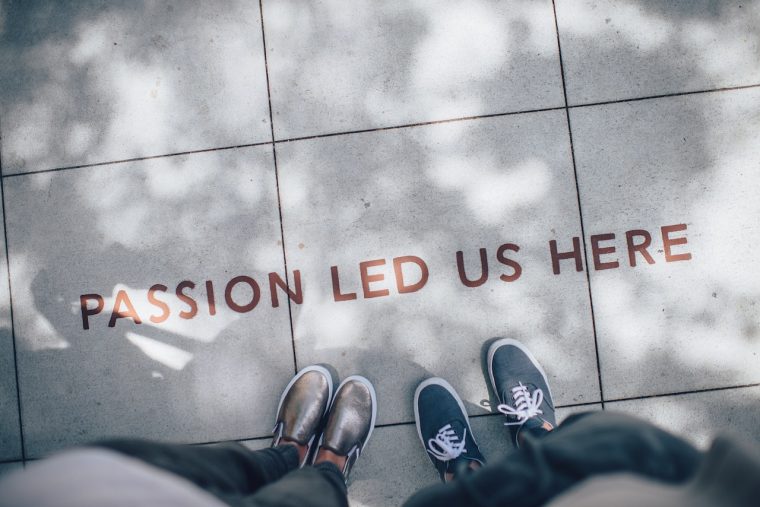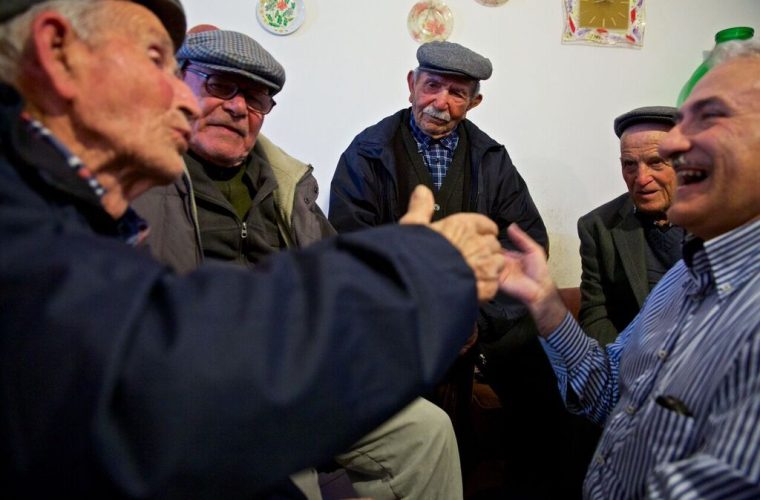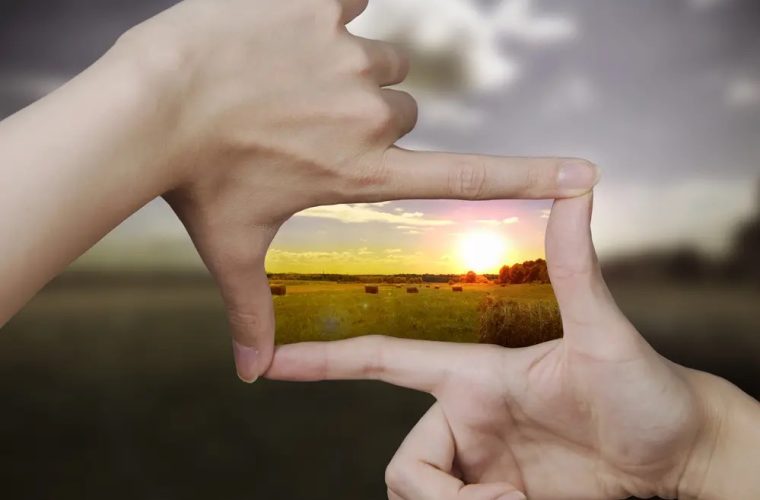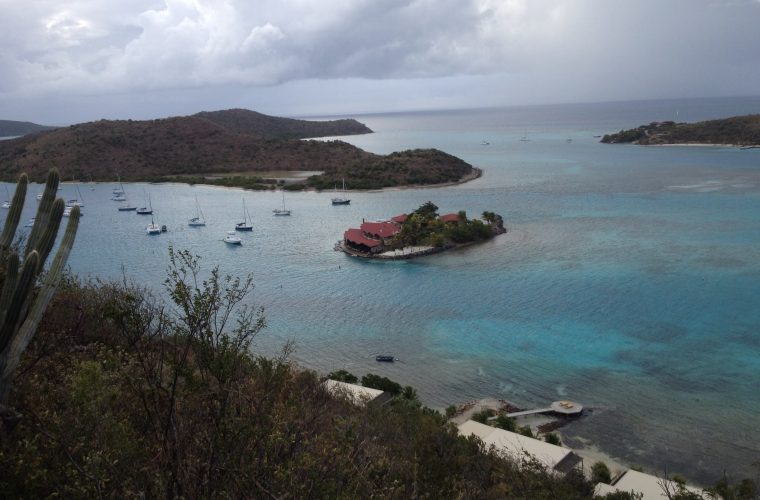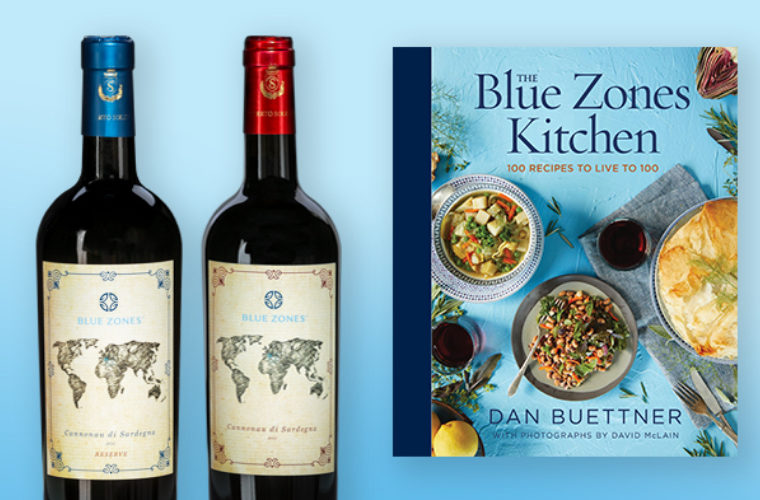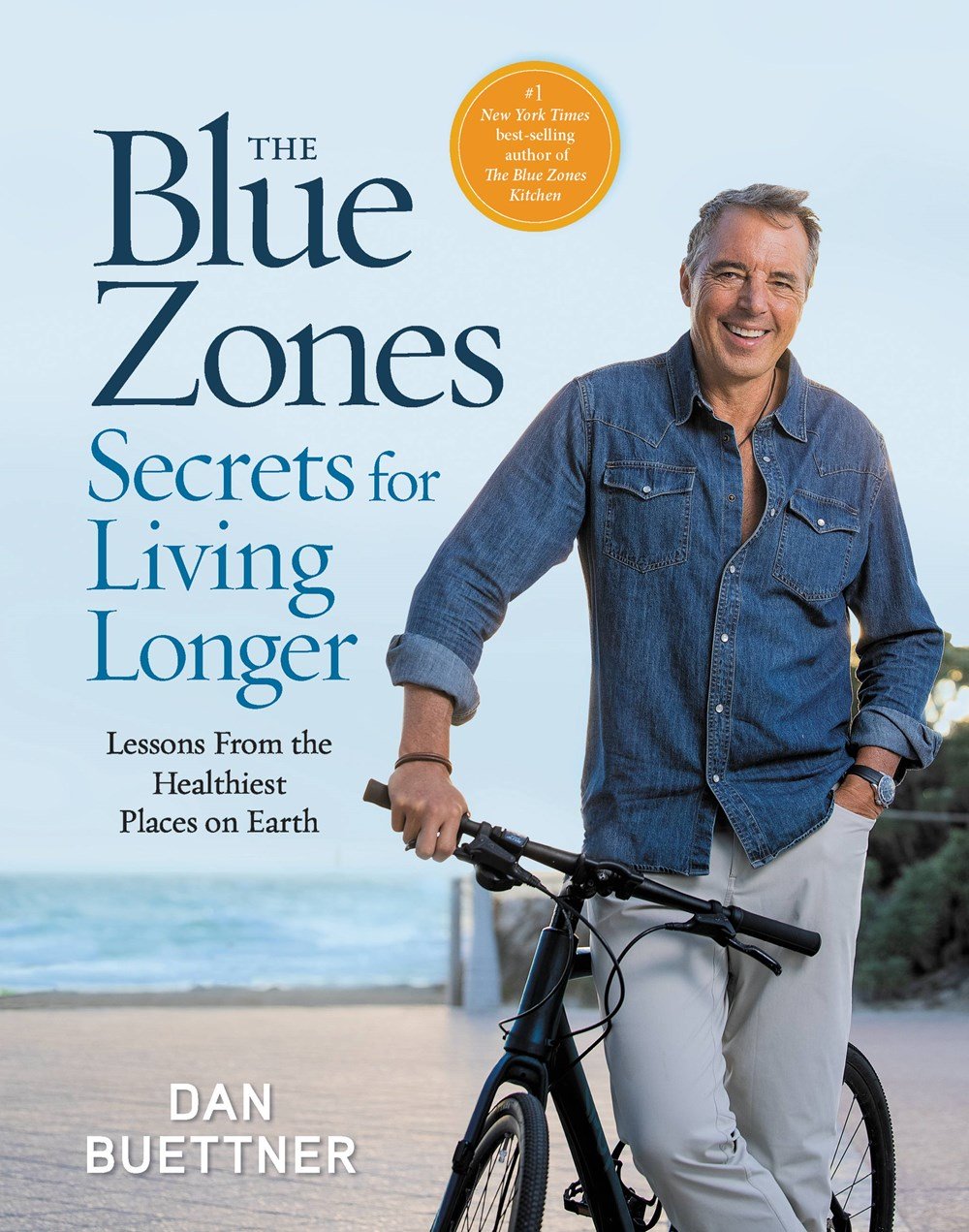Little did I know that Whole Foods CEO and founder John Mackey was in the audience. “I’ve spent my career trying to make it easier for America to eat healthy and then guys like you badmouth us…” he said to me after the show.
I felt terrible and resolved to make it up to him. Whole Foods really was the first major supermarket change to popularize organics. We began an email correspondence and eventually started a friendship.
Last May while hiking the Appalachian Train together, John told me about his new book, Conscious Leadership. It chronicles the wisdom he’s accumulated since running a small hippie co-op, to creating the now 550+ Whole Foods chain. It occurred to me that John’s success principals very much line up with Blue Zones: He built Whole Foods by starting with a sense of purpose, promoting a plant-slant lifestyle, and leading with love.
This approach works for longevity and apparently too, in business: He recently sold Whole Foods to Amazon for $13.7 billion.
Dan Buettner: You talk about purpose and the importance of it in Conscious Leadership. One of the things that a lot of people gloss over is how to identify your purpose as a leader.
John Mackey: Let’s talk first about finding purpose for the organization. Generally, entrepreneurs that start a business have a higher purpose. There is something they are excited about. There is something they’re passionate about. It may not be explicit and it may not be conscious to themselves yet, but something is driving them on.
If they were to do the inner work, they would discover a purpose. But most entrepreneurs may not be that conscious. For an entrepreneur or for a company, that purpose is going to be found in however they’re creating value for other people.
This is the untold story about business that needs to be told which is that it creates value for the people. Business is usually portrayed as a thing that creates a bunch of junk people don’t need and a bunch of products that poison them. This view forgets that, ultimately, business is about creating products and services that customers want to buy. The higher purpose of the business will be found in that value creation—whatever that might be.
So, for Whole Foods, our higher purpose is to nourish people and the planet and we’ve been doing that for 42 years now. If you look at somebody like Google, their higher purpose is to organize a world of information and make it readily accessible. And Tesla’s higher purpose is probably something like transforming our fossil fuel industry with electricity or reducing our reliance on fossil fuels. Their higher purpose is implicit with their solar power or with their automobiles. So for every one of the businesses we most admire, we can find their higher purpose by asking what value they’re creating.
What is the higher purpose of Blue Zones?
DB: Blue Zones purpose is to optimize people’s environments so they can live longer and better lives.
JM: Exactly. That refers back to the value that Blue Zones is creating for other people. So, every business can find its higher purpose by going deeper into their value creation. Now, if we can look beyond whatever the value creation you have and ask the question from a sense of higher perspective, then we take that value creation even higher.
Let’s take an example like Netflix. Remember when they started, they were competing with Blockbuster and were delivering DVDs by mail. So, if their higher purpose was just to deliver DVDs by mail, then they would not be the company they are today.
Instead, they saw themselves as an entertainment business and were focused on creating better ways to entertain and educate people. That led to streaming and now it has led to them creating their own shows, their own documentaries, and doing their own content creation. They didn’t see their value creation in just delivering DVDs by mail. They had a higher purpose that went beyond that.
DB: So you talked about how Whole Foods’ higher purpose is to nourish people and the planet. If that an extension of John Mackey’s purpose?
JM: The answer is yes, it is. However, when we co-founded the business, that was also the higher purpose of each of the people that were creating the business. That’s the unique situation of an entrepreneur. The business is often an extension of his or her own higher purpose in the world.
Someday I will retire from Whole Foods, and because I’m following the principles of the Blue Zones, I expect to have a vital life into my 90s and maybe even into my 100s. So, I have a lot more to do to express the higher purpose to nourish people and the planet that goes beyond Whole Foods.
So, purpose for a company or organization goes back to their value creation for others. — @WholeFoodsCLICK TO TWEET
Non-profit organizations also have this higher purpose. If you look at the Humane Society of the United States, their stated higher purpose is confronting cruelty and celebrating animals. The Nature Conservancy’s purpose is to preserve the wild places on the planet. It’s easy for us to see purpose in a non-profit because they don’t have profit as one of their goals. So, the purity of their purpose stands out more clearly, whereas for-profit businesses can oftentimes be seen as just concerned with making money. That’s a misunderstanding of purpose. I use this analogy that we get from Ed Freeman, the founder of Stakeholder Theory.
He uses the red blood cell metaphor which is this: My body produces red blood cells. If I stop producing red blood cells, I will die. I can’t live without red blood cells. But it doesn’t follow that just because I have to create red blood cells, that my purpose of being is to create red blood cells. It’s just something I have to do to survive.
Similarly, businesses have to make money. If they don’t make a profit, they’ll fail. But it doesn’t follow that a business exists just to make money. Any more than I exist just to produce red blood cells. They’re both necessary but that doesn’t mean that’s why either exists.
That’s the biggest misunderstanding about business and it’s also the biggest misunderstanding that results in people despising business because they think it’s all about money. It can be, and for some people, it is all about the money. But not most people, and not most businesses. Every business has the potential for a higher purpose.
DB: What about higher purpose for individuals? How does one find that?
JM: We’ve talked about me a little bit, we’ve talked about you a little bit, but I think every person has the potential for a higher purpose or to discover their own higher purpose and why. In a sense, when you discover your higher purpose, you go deeper and more fully into a meaningful life.
When I was hiking the Appalachian Trail, I noticed every trail had these things called blazes. So, about every quarter mile or so there would be a little two-inch by six-inch white marker on a tree or on a post or a stone. And it tells you that you’re on the Appalachian Trail. When I was hiking I thought, “Gosh, I wish life was this way.” I wish I’d get a little marker every so often mile that says, “You’re on the right trail still, John.”
I wish life was this way. I wish I’d get a little marker every so often that says, You’re on the right trail still.CLICK TO TWEET
But unfortunately, life doesn’t work that way. However, I think we know when we’re on the right path in life when we’re happy. When we’re following the things that we are most passionate about. Roy Spence, who started The Purpose Institute in Austin, often says this:
Don’t ask children what they want to do when they grow up or what they want to be when they grow up. Instead, ask them what they like to do. And that’s the key to purpose. The things we’re most passionate about are like windows into our souls about our own personal higher purpose.
Right now I’m reading this fascinating biography by David McCollough I recommend to you and the Blue Zones audience. It’s called The Wright Brothers and I was really struck by the story of the brothers. These two guys grew up in Dayton, Ohio, and didn’t go to college. They ended up getting into the bicycle craze at the end of the 19th century and opened a bicycle shop. They were following their passion for bicycles. Then they got increasingly more and more fascinated by gliders.
Gliders were showing that people could fly. So, they asked this interesting question, “Well, could we create a glider and put a motor on it so it could fly?” They were so passionate about this they studied every aspect of the question. They were so passionate about the idea of flight that they just lived and breathed it. That was the window into their soul.
Of course, they’re now famous for their passion for flight. They had no engineering background, didn’t go to college, didn’t have PhDs. They were just a couple of bicycle mechanics who were passionate about flying and pursued it with their whole hearts. And they changed the world.
DB: A great example, and it’s a great example to have a purpose to nourish people and the planet and then start a grocery store that actually delivers on that purpose. But most people don’t know what their purpose is. Most people graduate from college with enormous debt. Then they need health insurance, they need a job, they want to get married, and they have a mortgage. How do you find your purpose if it doesn’t naturally occur to you?
JM: There is an answer to this and you may or may not like the answer. But most people play it safe in life. Most people are not like you, Dan, who went out in his youth and followed his heart, followed his passion, and went exploring. You took on this grand adventure as you followed the things you most cared about.
Most people choose to play it safe because they’re afraid. Fear constrains us, fear keeps us from finding our own higher purpose in life. We’re afraid of failure, we’re afraid of rejection, we’re obviously afraid of death, we’re afraid of being lost, we’re just are fearful. So, we play life safe. One of the things I figured out at a pretty early age and I think you figured it out too, is that there is no safe place.
If we want to find our own purpose in life, we have to be willing to confront fear.
We have to be able to move past it. We have to have courage and if we do that and we’re willing to pursue our interest, then I think we’ll unleash a wonderful journey of discovery in which we’ll find our own purpose but also find out who we are. I think we have this limitless potential as human beings to learn and grow. We talk about in the book in Chapter Nine. You have to continuously learn and grow because purpose isn’t easy. It’s a discovery process. You discover it if you’re willing to follow the path. The path calls you. The hard part is answering the call and in my experience, most people don’t. I did, you did, and many other people do but most people are too afraid. So, they don’t discover their purpose.
Here is the good news, you can change today. You can begin to pursue your interests today and launch the journey. It’s never too late until we’re dead. We still have time but we have to be willing to accept the task, the road less traveled.
DB: I think it’s an important insight that you just identified fear as the main hurdle for people in following the purpose. So, I’m going to ask you to back up one more time. To help, how does a young person crystalize what their purpose is? Maybe you can answer that question by telling us how you came up with your purpose to nourish people and planet?
JM: Let me just tell a story because stories work better. This is a story from my own life. I’m about 20 years old at this point and a student at the University of Texas in Austin studying philosophy. I had no idea what I wanted to do or why, but I was very interested in philosophy.
I was on a track to get a degree in philosophy but still had to take the required courses you’re not interested in. I would read for 10 hours every day on subjects that interested me or that I was passionate about. But then I’d go to a required class that I hated. I also didn’t like the professor and I didn’t want to read the books. I fought a battle within my soul for about a week because dropping the class meant I wouldn’t get my degree and would disappoint my parents.
I was afraid. Afraid of what my friends would say, afraid of what my parents would say, afraid of what I would do with my life, and afraid of not getting a degree. After four or five days, I made the decision. I threw down the books and decided to follow my own path. I felt incredibly free and liberated. I told my parents who cut me off from their financial help. But I was free.
I got a job, and back in the 70s, it was easier to live. I lived with a bunch of other people and I didn’t have to pay very much money. I was healthy, I was young, and I just began to follow my own path. I moved into this vegetarian co-op soon after that. Even though I wasn’t vegetarian, I was interested in all things counterculture. I became a vegetarian and learned how to cook. I became the food buyer for the co-op. I was fascinated with all things natural and organic about food and started reading books, learning, and cooking more. I couldn’t get enough of it.
I went to work for a small natural foods store. One day I came home after work and said to my girlfriend, “Renee, why don’t we start up our own store?” She thought it was the coolest idea. She was 19 and I was 23. So, that’s what we did. We went out and hustled money, we got $45,000, and then started the first store called Safer Way in this small, old house. That led to the first Whole Foods Market a couple of years after that and the rest is history.
I found my higher purpose by simply following my heart wherever it led me. I know that is hard advice to give to people. Maybe it won’t work for everybody, but it worked for me. It worked for other people that I know. So, when asking the question about how young people find their purpose, it’s not like you figure out your higher purpose overnight.
Think about it as a discovery process. In a lot of ways, I’m still figuring out my higher purpose. And it’s evolved over time as I’ve gone deeper into it. I used to think it was just Whole Foods but now I’m thinking a lot bigger. I’ve met people like you who share a similar higher purpose, so what are things we can do together and what are the things we can create in the future?
These are things that still excite me. I’m still passionately in love with life and with my own contribution to making the world a better place but I still don’t have it completely wired. I’m still figuring it out because I’m still creating it. I’m discovering it and creating and inventing it while following the things I care the most about.
At the end of the day that leads to a deeply fulfilling, satisfying life. Because I’m intensely alive. I’m not in a box and instead, I’m awake, I’m alive, I’m living, and I’m adventuring. Dan Buettner has “Explorer” on the back of his business card which I just absolutely love. I feel like I’m an explorer too; I’m just exploring a different part of reality to see where it goes.
DB: Remarkably, you’ve been successful as an entrepreneur in a tiny little store, you’ve been successful as a leader of a small chain, and then of a big chain, and then of a $14 billion grocery behemoth. It takes completely different skillsets to be successful at all those different strata of the success ladder. How have you been able to get good at all those different levels?
JM: First of all, I’m not good at all those things. If I’m good at some things it’s because I made a lot of mistakes and I learned a lot and have gotten better. To create anything really great in life, you tend to not do it by yourself. You do it with other people. I’ve been very fortunate because I’ve been able to attract other people who want to partner with me or who want to work with Whole Foods to join in this shared adventure of creating a different kind of conscious business. By the way, we’re up to $20 billion in sales.
DB: Oh, wow.
JM: If you’re counting.
DB: People are.
JM: The point is I have learned and grown. I’m a different person than I was when I was 23 or 24 and starting the business. But it is still a continuation and on a continuum. When you throw yourself into something passionately, you have the potential to learn everything about it because it’s fascinating to you. I’ve read hundreds of business books. I didn’t take one business class in college but I’ve read hundreds and hundreds of business books. I’ve had conversations with some of the most brilliant people in the world today. So it’s about continuously learning. The Wright brothers, they were bicycle guys. What did they know? Yet they invented the airplane.
Once you’re turned onto something, you learn very rapidly because you’re like a sponge. You soak it up. When you were doing your bicycling adventures as a young man around the world, you didn’t just take off one day on your bicycle. You planned it out and collected people who would help you to achieve your goals and objectives. There are a lot of similarities and overlap between a successful expedition like that and the expedition of building Whole Foods market.
DB: Yes, but yours is much longer. You’ve touched on something really powerful and you’re quick to give credit for your success. Could you connect the dots between Conscious Leadership and how it draws the right people to you to help you become successful as you have done with Whole Foods?
JM: Part of it is self-awareness. One of the things that trips up a lot of entrepreneurs is simple ego. You get a little bit of success and it goes to your head. You start thinking you’re better than other people, you’re smarter, you’re more capable. I’ve seen this sink a lot of entrepreneurs who let their egos get way out ahead of who they really were as human beings.
I just had my face slammed in the ground enough times and repeatedly over the last 42 years. I don’t have a real sense that I’m better than other people or smarter or more capable or anything. I just feel that as human beings, we each have these capabilities and potential. I’ve become more self-aware of my failings.
I have a lot of self-confidence but I also have a realistic view of what I’m good at and what I’m not good at. So, I always wanted to get people on my team who were a lot better than me and a lot smarter than me in certain areas. I didn’t care who got the credit. In Chapter Seven of the book, I talk constantly about involving the team. You can attract the right people to your company with your passion, your vision, and the rewards they can get. If you get the right people on your team, then your team makes you look good. So, if you get the wrong people on the team then they make you look bad. So you’re no better than your team. To use a sports metaphor, if you have the best players on your team then you’re more likely to win but you still have to play well together and have chemistry to win.
I do think one of the reasons I’ve been so successful in business is the purpose, passion, and energy I had for it. I was able to attract some really amazing people to work with me.
DB: How? How did you attract those people?
JM: I think a big part of it is purpose. If you had a choice, would you like to do something that makes the world a better place and helps people or would you rather just sell widgets?
Most people would say they’d rather do something that helps the world. People want to feel good and make a difference if they can. I was able to articulate the purpose of Whole Foods and this vision of what we could do together, and that attracted a lot of really capable people. It’s like a magnet that attracts — a company’s culture, vision, and purpose attracts people.
Whole Foods is part of Amazon now and one of the first things I noticed about Amazon was how many really smart people they have on their executive team. Part of that is the fact that Amazon pays well, but that’s not the main thing.
The main reason that Amazon attracts so many people is Jeff Bezos and other team leaders have been able to articulate a great vision for how the company can help change and improve the world. That attracts a lot of people who want to be part of that because everybody wants to be part of a winning team. It’s fun to have a hand in changing the future. That’s exciting.
DB: I can sign on to nurturing people and planet but what is Amazon’s higher purpose?
JM: That’s such a good question. They have articulated a purpose but I think their higher purpose is beyond what they articulate now. Their purpose is to be the earth’s most customer-centric company. Amazon puts the customer first and believes in always creating value for customers. They really do deeply care about their customers and I’ve been with the company for three years. But I think Amazon has a higher purpose beyond that which hasn’t really been fully fleshed out. It’s not my job to do that.
Remember I also talked about this being a discovery process. We’re discovering as we go along. Amazon is still discovering. Whole Foods is 16 years older than Amazon. They’re earlier in their journey of conscious development even though they’re a huge corporation.
DB: Another important value that you share with Blue Zones is living a plant-based life. I know you started as a vegetarian but now you’ve become 100%…can you tell us how that happened and why you’re plant-based?
JM: There are three different reasons why people become 100% plant-based. One is ethical about not harming animals. The second reason is health, as we know from Blue Zones research that people eating primarily a plant-based diet are going to live longer and have better health outcomes. The third reason is environmental because you lessen your impact with carbon emissions and the destruction of the habitat and things like that. For me, it was the first one – the ethics of it.
It started at a protest in 2003 at one of our company meetings. But it led to me having a conversation and continued correspondence with one of the protestors which led to me changing my diet personally. But then it also, on a larger scale, led to us creating a coalition of sorts of animal scientists, animal producers, and animal rights activists. The four groups (including Whole Foods) came together to work out animal welfare standards for how animals should be treated and that led to the five-step process that Whole Foods uses today to rate suppliers with a third party to certify them to the welfare practices. It took many years to do that and I’m very proud of it. Although some of the animal rights people are still upset because they think we’ve given people an excuse to continue eating animals, we did help hundreds of millions of animals have better lives.
DB: Do you think you’re healthier because of it, even though you went through the ethics door?
JM: Am I healthier? The answer is yes, but it was a two-step process for me. When I first became 100% plant-based, my cholesterol dropped and I lost about six or seven pounds. And then I hit this plateau. My cholesterol was still about 199 and I wasn’t as healthy as I wanted to be.
Then I read Colin Campbell’s The China Study, Caldwell Esselstyn’s Prevent and Reverse Heart Disease, John McDougall’s work, and Joel Fuhrman’s work about the effects of eating a whole-food, plant-based diet. Before that, I was still eating a lot of junk food, a lot of sugar, and a lot of oil, salt, and processed food.
Once I went on the straight and narrow, I lost more than 10 pounds. I weigh as much today as I weighed when I was a senior in high school. Literally 49 years ago. My cholesterol went down to 135, my blood pressure dropped to 115, and I am healthier today than I was 25 years ago. It’s the combination of plant-based with whole foods. If you eat a junk food vegan diet, you won’t be healthy. If you eat a whole food vegan diet you will be healthy. So, health was not the main reason I started eating this way, but it was a huge benefit. A very nice byproduct.
DB: John, you’ve been hugely successful already. You don’t need to write a book. Why did you write this one?
JM: There are a lot of reasons. One reason was to leave behind something to the people that come after me at Whole Foods. So that even after five years, 10 years, or 20 years somebody can hear from the founder. I hope it will help Whole Foods Market stay conscious and purpose-driven. The second reason was because I have 42 years of mistakes under in my belt and I’m trying to share the wisdom that I gleaned from doing this for so long. I want to help people who want to be conscious leaders.
The third and most important reason I wrote this book is because I think business is terribly misunderstood. It’s seen as greedy, selfish, exploitative… it has a bad reputation in world. It’s seen as focused on profit and money and not as one of the good guys. You’re seen as one of the bad guys.
I think this is completely wrong. I think business is the greatest value creator in the world. Business lifted humanity out of the dirt. If you go back to 200 years ago, 94% of everyone alive on the planet lived on less than $2 a day. Now it’s about 9-10% that do that. The life expectancy was 30 and now it’s 72.6. Illiteracy was over 90% and now it’s about 12%.
Capitalism has been disdained and seen as negative. I think part of the reason for that is that businesses have done such a bad job of explaining themselves in the world. They don’t talk about higher purpose. The business world lets its critics define it. To change this, I wrote Conscious Capitalism first and am now following up with Conscious Leadership.
I’m painting a different narrative that business can be heroic. Business is the value creator that allows humanity to prosper, that can help end poverty, and that makes science and technology more concrete and real in people’s lives. It’s the entrepreneur that takes the scientific discoveries and operationalizes and actualizes them. I want to get businesspeople and intellectuals to begin to rethink what business is. Business has tremendous potential to be purpose-driven. You can lead with love which is Chapter Two in the book. With integrity, finding win-win-win solutions, and conscious leadership, we’re putting forth an ideal on how business can and should be.
We need a bold revolution in business. We need to rethink what it is. That’s the most important reason I wrote the books. I want people to think about business differently and I want business to think about itself differently.
DB: I would say much of the value that capitalism has given the earth is sort of a byproduct. I think it’s the minority of people who are like John Mackey in leading with love, thinking about purpose, and making sure their business life telescopes their higher self. Most business leaders are not like you, are they?
JM: Most people are good people, Dan. Businesspeople aren’t different than the rest of the people in the world. Businesspeople love their children and their families and try to be good citizens. So, are most businesspeople as conscious about the stuff as I am? Many of them are not which is also partly why I wrote this book. There’s a great quote by Margaret Mead that is really applicable to what you’re asking. She said, “Never doubt that a small group of thoughtful, committed citizens can change the world; indeed, it’s the only thing that ever has.” We started up Conscious Capitalism as a nonprofit to change the world of business and help it to evolve. It doesn’t require everybody to convert over. It requires a few committed conscious leaders to deliver a message that inspires other people. That makes it to the business schools and inspires intellectuals to embrace it. That’s how you make a change in thought.
I’m an optimist, an entrepreneur, and I’m hopeful. I think the world can, in fact, change. The country right now is completely divided. One of the ways through is conscious leadership. We need more conscious leaders in business but we also need them in government. We need conscious political leaders, we need conscious leaders in education, healthcare, the military and in all aspects of our lives. Our book will help create more conscious leaders.
So, we’re trying to spark a movement here, a different way of thinking about things. Because we’re stuck in a lot of ways right now.
DB: My favorite chapters are about leading with love because you don’t hear that every day.
JM: People don’t talk about love in business. All the metaphors we use in business are war metaphors, Darwinian metaphors for survival of the fittest, and sport metaphors of winning and losing. Love is seen as weakness but I think love is so important in business. It holds the team together. I was kind of embarrassed to say it, but I love my team. I have found if you want people to work for your company for a long time, it’s one of two things people are really looking for.
Number one, people want to feel like their work makes difference. That’s why people are dedicated to nonprofit organizations because they have a sense of purpose from it. You can do that in corporations too but it’s harder. If you give them both a sense of purpose and a sense of love, you’ve got them. They’ll give their creative energy to you and the best part of their self to you and the organization, because you’ve given them purpose and love. Those are two of the deepest needs I think the human heart has.
One of the things Amazon was amazed at when they first encountered Whole Foods was how much longer people work at Whole Foods than anywhere else. Much longer than they work at Amazon. And I said it was because of purpose and love.
So, love is so very important but finding win-win-win solutions is maybe the biggest idea in the entire book. It’s so important. Think about the political divisiveness we have now.
DB: It’s always win-lose.
JM: Right. Our side wins and your side loses. We have to create a different framework to work together to better America. We need to find the win-win-win solutions. Healthcare is a great example. We can create a healthcare system that is both economically responsible and provides universal coverage. It’s possible. We can do it if we work together. Singapore has a great system. Switzerland has a great system. It’s not like we have to reinvent the whole damn thing. We just have to take the best practices from around the world. Hey, you do this in Blue Zones. There’s a lot we can learn from other cultures and countries. That’s part of what you’re doing to help America.
